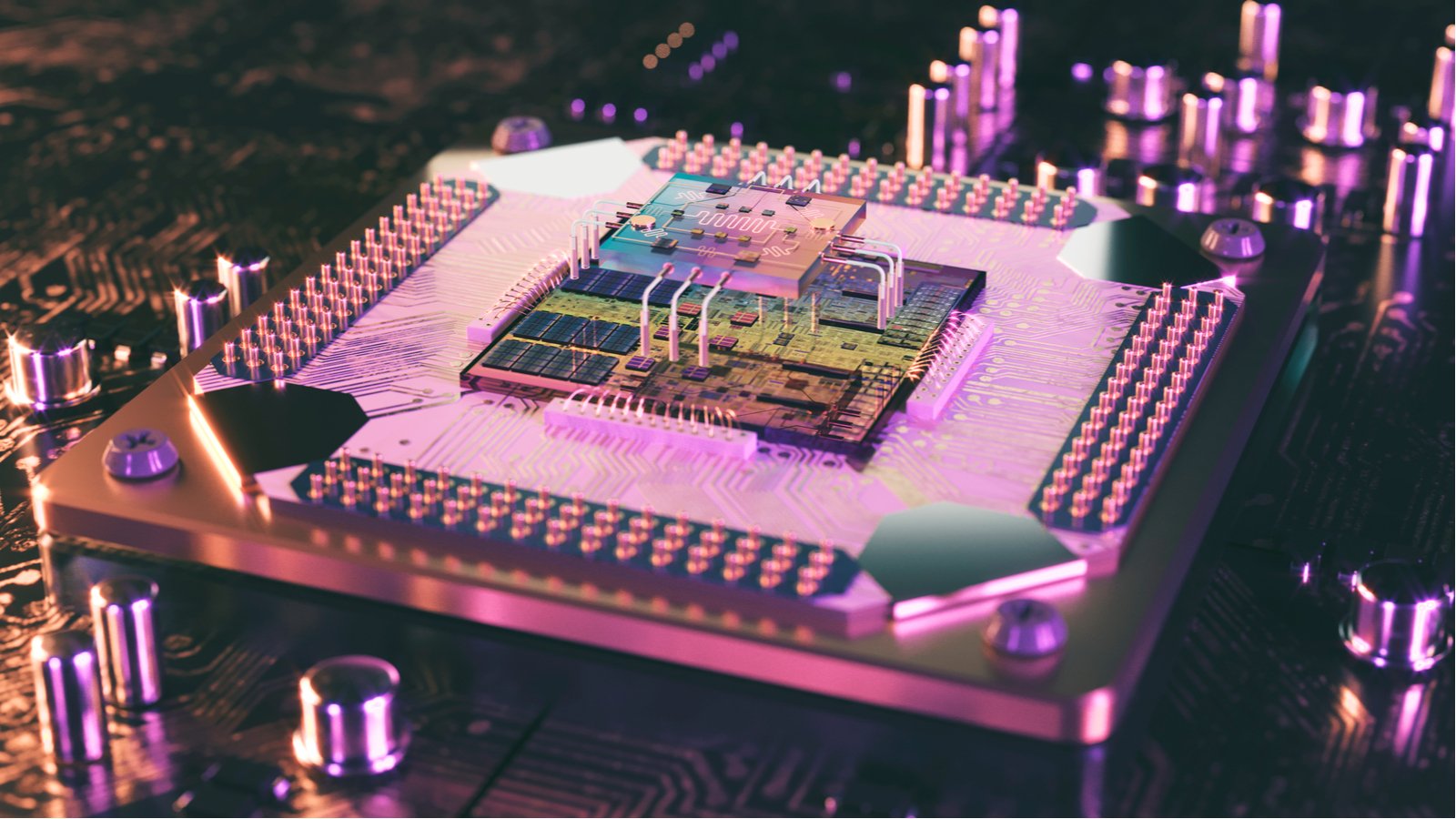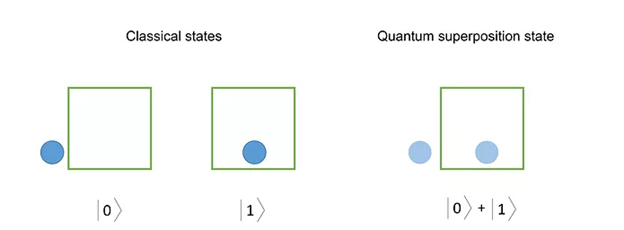Editor’s note: “The Best Industry for Long-Term Investors?” was previously published in March 2023. It has since been updated to include the most relevant information available.
As a long-term investor, there’s one thing I like to do during periods of market volatility like we’re seeing right now.
I like to zoom out and look at the big picture to identify the technological megatrends that will reshape the world over the next decade, regardless of market gyrations. Then I buy the stocks on the cutting edge of those megatrends at huge discounts.
And after a few years, I like to sell those stocks for huge profits.
I did this in 2015, when the market was freaking out about plunging oil prices and a global economic slowdown. That same year, I recommended investors buy the dip in an up-and-coming chipmaker called Advanced Micro Devices (AMD). A few years later, AMD stock had soared more than 8,000%.
I did this in 2018, when the market was crashing as the Fed was hiking interest rates too aggressively. In the midst of that crash, I recommended investors buy the dip in tech stocks like The Trade Desk (TTD), Roku (ROKU), and Tesla (TSLA). All three of those stocks went on to soar more than 1,000%.
And I also did this in March 2020, when the market was roiling in the wake of COVID-19. In March and April, I was pounding the table on stocks like ZScaler (ZS) and Snap (SNAP). Those stocks popped more than 500% each over the next year.
This is sort of “my thing.” I thrive in market volatility because I’m able to zoom out and look at the big picture. I understand that the volatility will pass and that its only true lasting impact will be the opportunity it offers to buy the future at a discount.
And that’s an opportunity I’ll never pass up.
So, here I find myself in May 2023, faced with a struggling stock market that is coming off of one of its worst years ever. Bank failures are piling up. Recession fears are rising.
Yet, I’m not running for the hills. I’m running into the storm because in its wreckage, I know I’ll find fortunes.
Indeed, I think I’ve found the biggest potential fortune-making opportunity of my career in this stock market storm. I’m talking about a breakthrough tech that could be more important to humanity than the invention of the wheel or even the discovery of fire.
I’m talking about quantum computing.
What Is Quantum Computing?
Quantum computing is an enormously complex topic that could take an entire textbook to thoroughly explain. It deserves exhaustive and rigorous treatment. But I will try to give you a brief and clear overview of its main concepts and implications in as few words as possible.
So, in a nutshell, quantum computing is a technological breakthrough based on the principles of quantum mechanics – the physics of subatomic particles.
Unlike classical mechanics, which describes the behavior of ordinary objects and phenomena, quantum mechanics deals with the realm of the very small, where electrons and other subatomic particles behave in strange and surprising ways.
For example, subatomic particles can exist in a superposition of states, meaning they can be in more than one place or have more than one property at the same time. This defies our common sense and intuition, but it has been experimentally verified and mathematically formulated.
So, the true “location” of a subatomic particle is some combination of all its possible positions.
This is called quantum superpositioning.
A key difference between classical and quantum mechanics is the role of probability. In classical mechanics, objects have definite properties and interact with other real objects. For example, if you’re moving a couch, you need a real friend to help you, not an imaginary one.
But in quantum mechanics, things are not so clear-cut … you actually can use your imaginary friend. See; subatomic particles exist in a superposition of possible states. And their properties are only determined when they are measured.
Moreover, these multiple states are not independent, but entangled. This means that if we measure one subatomic particle, we can infer something about another, even if they are far apart. This is called quantum entanglement.
Quantum entanglement implies that all the possible states of a subatomic particle can cooperate with each other to perform some task.
Pretty wild, right?
It goes against common sense and everything classical mechanics has taught us about the world. But it’s real. And now, for the first time ever, we are learning how to harness this unique phenomenon…
This is why quantum computing could be more revolutionary than the discovery of fire or the invention of the wheel.
Everything will change over the next few years because of quantum mechanics – and some investors are going to make a lot of money.
Quantum Computing Will Change the World
The study of quantum theory has led to huge advancements over the past century. That’s especially true of the past decade.
Scientists at leading tech companies have started to figure out how to harness the power of quantum mechanics to make a new generation of super quantum computers. And they’re infinitely faster and more powerful than even today’s fastest supercomputers.
According to Haim Israel, a research director at Bank of America, quantum computers could do more calculations by the end of this decade than there are atoms in the visible universe.
How is this possible? Here is a simple explanation:
Normal computers store information in bits, which can be either 1 or 0. A quantum computer, on the other hand, exploits superposition to perform calculations that would be impossible or impractical for classical computers. For instance, quantum computers use quantum bits, or qubits, which can be 0, 1, or both at the same time, unlike classical bits that can only be 0 or 1.
By manipulating qubits with quantum logic gates, a quantum computer can perform parallel operations on multiple states simultaneously, achieving exponential speed and efficiency.
Quantum computing has the potential to revolutionize many fields and industries, such as cryptography, artificial intelligence, medicine, and physics. That’s not to say it’s not without its drawbacks. Quantum computing poses many challenges and limitations, such as noise, decoherence, scalability, and error correction.
That’s to be expected, as quantum computing is still in its infancy. But it is rapidly advancing and attracting a lot of interest and investment from researchers, governments, and corporations.
Quantum theory is very complex and hard to understand, but it is also very fascinating and powerful.
And it is changing our view of reality and our potential for the future.
The Possibilities Behind Quantum Computing
Google has created a quantum marvel: a machine that outperforms the world’s fastest supercomputer by a staggering 158 million times!
This is not an exaggeration. This is a fact.
Think of the amazing potential of a new generation of quantum machines that can do 158 million times more than the current computing power…
We would witness the dawn of true AI, the kind that you only see in sci-fi movies. The main bottleneck for AI today is the quality of machine learning algorithms, which depend on the availability of supercomputing resources. Boost those resources, and you get infinitely better machine learning algorithms and infinitely smarter AI.
We would conquer disease. We already have tools like gene editing. But their success depends on the reliability of the underlying computing power to identify, target, insert, cut, and repair genes. Add quantum computing power, and all that happens flawlessly in seconds — allowing us to heal anything about anyone.
We would achieve the ultimate EV dream: a battery that lasts for a million miles. We can only improve batteries if we can test them. And we can only test them so much in the real world. Therefore, the key to unlocking a million-mile battery is through simulation. And the speed and accuracy of simulations rely on the strength of the underlying computing power. Multiply that power by 158 million, and cellular simulation will happen 158 million times faster.
The economic opportunities here are truly limitless.
The Final Word
Quantum computing is not just a buzzword. It’s a game-changer.
It’s a revolutionary technology that uses the power of quantum physics to solve problems that are impossible for classical computers.
I don’t hesitate to say that quantum computing is bigger than the internet, bigger than fire, bigger than anything you can imagine.
And you have a unique opportunity to be part of this quantum revolution…
There is a hidden gem of a company that has developed the most cutting-edge quantum hardware in the world. This company is poised to dominate the quantum computing market and deliver massive returns to its investors.
Few people have heard of this company. So you can get in on the ground floor of the next big thing.
Learn more about this amazing firm and its breakthrough quantum technology today.
On the date of publication, Luke Lango did not have (either directly or indirectly) any positions in the securities mentioned in this article.

